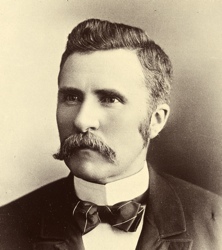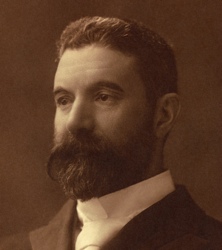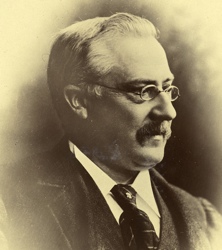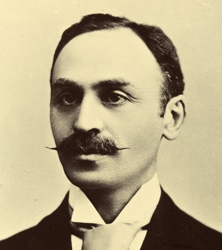John Quick was born in England in 1852. His family came to Australia in 1854, and went to the Bendigo goldfields. John started work in the mines when he was 10 years old. He taught himself shorthand, and later became a reporter for the local paper. After moving to Melbourne, he gained scholarships to go to university and become a lawyer. When he was 28, he became Member for Bendigo.
Quick became a passionate advocate of Federation, and although he was not born in Australia, the Australian Natives Association bent its rules and allowed him to be a member. The Association was a great campaigner for Federation, and Quick established the Bendigo Federation League. In 1893, he was an Australian Natives Association delegate at an informal conference on Federation in Corowa, New South Wales. He played a key part in developing the conference plan, which advocated that the people rather than the parliaments should elect a new Federal Convention and vote on the Constitution. Quick worked hard to have the plan adopted. He was an active participant in drafting the Australian Constitution and was knighted in 1901 for his contribution to Federation.
Quick served in the Commonwealth Parliament from 1901, but was disappointed that he was never made a minister. He was appointed Deputy President of the Commonwealth Court of Conciliation and Arbitration, and wrote several books. He died in Melbourne in 1932.



